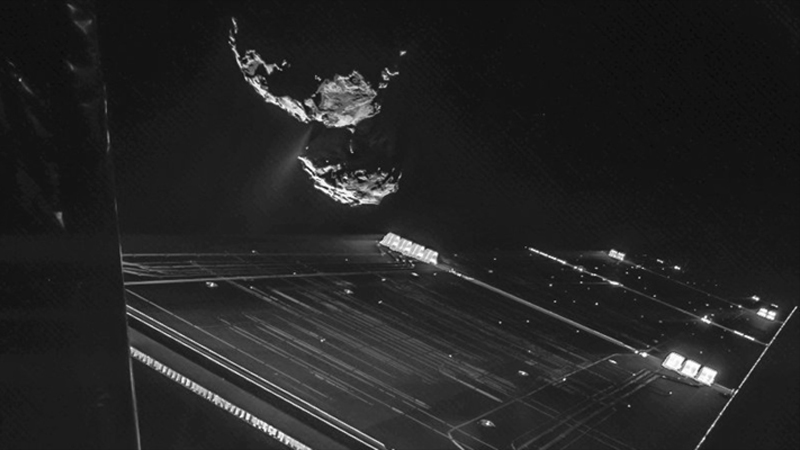
After several months of analysis of Comet 67P/Churyumov-Gerasimenko, the European Space Agency’s Rosetta spacecraft has yielded some intriguing, and maybe unexpected, results. This data is refueling a long-running debate in the scientific community about a matter closer to home: the origin of Earth’s oceans.
It has long been debated exactly how Earth acquired its oceans. Were the waters of our oceans part of the Earth’s original stock of materials, or was it added later? Was it a combination of these? It is thought that any water present in the original formation of the Earth should have boiled away due to Earth’s hot, molten-rock temperatures–in which case some, if not most, of the ocean’s waters must have arrived after Earth cooled.
After four and a half billion years, how could we possibly tell where the water came from?
The answer is in chemistry—particularly the chemistry of the hydrogen contained in water molecules. Hydrogen comes in different forms, or isotopes, the simplest of which contains a single proton in its nucleus. The hydrogen isotopes deuterium and tritium each contain a proton, plus one and two neutrons, respectively.
The proportion of water molecules containing deuterium atoms compared to “normal” water molecules possessing only hydrogen is a key ratio that can be used to match one sample to another—for example, matching the hydrogen-deuterium ratio in Earth’s ocean water to that sampled from a particular comet, sort of like matching the DNA found at a crime scene to an individual suspect. In this case, the “crime” being investigated is the appearance of Earth’s oceans—so we can probably be lenient on any suspects we match.
